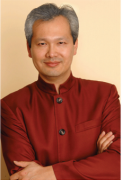While you are spending summer fun in the sun and surf, take another look at seaweed swirling around in the water. Did you know many types of seaweed are nutrient powerhouses that have more calcium than cheese, more iron than beef, and more protein than eggs?
Seaweed and marine algae are considered the kings of vegetables because their roots penetrate into sea beds that are filled with trace minerals, which are no longer present on land. They have long been considered to possess powers for prolonging life, preventing disease, and imparting beauty and health. For thousands of years, this mineral-rich vegetable has been a staple in Asian diets, and there are over 20 types of edible seaweed.
Kombu: Metabolism Booster
An edible kelp, kombu comes in long, thick brown strips. With its powerful trace minerals, kombu aids your body in detoxification. Kombu is valuable for its high content of iodine, which is needed to produce two important thyroid hormones that control the metabolism. Our bodies don’t make iodine, so we have to get it through food. Many people are thyroid deficient—kombu comes to the rescue with its natural content of iodine! In addition, there is a pigment in kombu called fucoxanthin, which may boost production of a protein involved in fat metabolism.
Eat it! You can find kombu in many health food stores, Asian markets, and online. Try simmering chopped kombu in your soups until soft—or use it to make dashi stock, which is the Japanese equivalent of chicken broth. To make your own dashi, cook 4 cups of water over low heat, and then add 8 inches of kombu that has been cut in half. Simmer over low heat and then strain the stock. Dried shiitake mushrooms are often added for flavor.
Nori: A Skin Superstar
Best known as the outer wrap of sushi rolls, nori is a great snack for skin health. Just one sheet of nori has the same amount of omega-3s as two whole avocados. The omega-3s in nori help create a natural oil barrier on your skin, helping to reduce acne and dry skin. Nori also helps reduce the body’s production of inflammatory compounds that affect how healthy the skin looks and feels.
Eat it! Find nori in Asian grocery stores and healthy food markets, often in sheets, strips, or flakes. Munch on the snack sheets or make your own easy sushi! Cover an open sheet of nori with cooked brown rice. Add shredded carrots, thinly sliced avocado, cucumber, and any other vegetable you like. Roll it all up and dip in sesame oil and ginger sauce.
Wakame: Beat the Bloat
Often found floating in miso soup, wakame looks like slippery spinach. It is a diuretic, which means it helps reduce the amount of water in the body. Because it prevents bloating and is packed with osteoporosis-preventing calcium and magnesium, wakame is sometimes referred to as the “women’s seaweed”. The wakame benefits don’t end here; this seaweed is also high in important trace minerals and is one of the few non-animal sources of vitamin B12.
Eat it! You can find wakame in many health food stores, Asian markets, and online. Try it in miso soup. Or soak the wakame for a few minutes to reconstitute, then chop, and turn into a salad. One delicious option is to pair wakame with cucumbers and rice vinegar.
Algae: Get All the Green Benefits
Nutrient-rich super foods like spirulina, chlorella, and blue-green algae are considered to boost energy, increase brain function, and support vision health. Like most green-hued plants, these algaes contain chlorophyll. Chlorophyll resembles the structure of the iron-containing hemoglobin in the human body and increases blood cell production, improves oxygenation, detoxification, and circulation—all of which keeps you in overall good health.
Eat it! Often available in powdered supplement form, these algae can be added to water, juice, green tea, or blended smoothies. Children shouldn’t take more than one gram, while pregnant and nursing women should speak to their physician before taking any supplement.
May you Live Long, Live Strong, and Live Happy!
--Dr. Mao Shing Ni, best known as Dr. Mao is a bestselling author, doctor of Oriental Medicine and board certified anti-aging expert. He has recently appeared on The Ricki Lake Show, Dr. Oz, and contributes to Yahoo Health and The Huffington Post. Dr. Mao practices acupuncture, nutrition, and Chinese medicine with his associates at the Tao of Wellness in Santa Monica, Newport Beach and Pasadena. Dr. Mao and his brother, Dr. Daoshing Ni, founded the Tao of Wellness more than 25 years ago in addition to founding Yo San University in Marina del Rey. To subscribe to his tip-filled newsletter please visit www.taoofwellness.com. To make an appointment for evaluation and treatment please call 310-917-2200 or you can email Dr. Mao at [email protected].
All user-generated information on this site is the opinion of its author only and is not a substitute for medical advice or treatment for any medical conditions. Members and guests are responsible for their own posts and the potential consequences of those posts detailed in our Terms of Service.





Add a Comment1 Comments
Hi Dr. Maoshing Ni,
This is very interesting information. I didn't know seaweed and algae contain calcium, protein and iron.
Daisy
July 12, 2013 - 4:39pmThis Comment